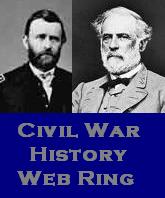Charles McMaster was born in Ireland. He enlisted in the 1st U.S. Cavalry on November 22, 1858. He served as a private, corporal, sergeant and first sergeant in Company I, 1st (later 4th) U.S. Cavalry for the next five years.
It appears that First Sergeant McMaster won his commission through bravery and gallantry in battle. He is mentioned in the Official Records multiple times prior to his commissioning. The first time was in the report of Captain Elmer Otis, acting regimental commander, on the battle of Stones River. “No one could have acted more bravely than First Sergt. Charles McMasters, of Company I” (OR, Ser I, Vol20, Pt I, pg 650). He was again commended by his regimental commander, Captain John B. McIntyre, for “gallantry and soldierlike conduct” during fighting near Salem, Tennessee on June 24th, 1863. First Sergeant McMaster was mentioned in the report of brigade commander Colonel R. H. G. Minty for his conduct three days later in fighting near Shelbyville. “First Sergeant McMaster, I Company, Fourth U.S. Cavalry, was conspicuous for his gallant conduct in the charge on the battery, and is honorably mentioned by Captain Davis (OR, Series I, Volume 52, page 423-4).
He was appointed a second lieutenant in the 2nd U.S. Cavalry on August 10, 1863, but didn’t learn of the appointment until ten days later. He departed the 4th Cavalry on August 20th, and moved east to join his new regiment.
He joined the 2nd Cavalry at Camp Buford in September 1863, and was assigned as the acting adjutant until November. He served with the regiment in the vicinity of Mitchell’s Station, Virginia until May 1864. During the summer of 1864, he fought with his regiment in the battles of Todd’s Tavern, Yellow Tavern, Meadow Bridge, Hawes’ Shop, Cold Harbor, Trevillian Station and Deep Bottom through August 1864.
Lieutenant McMaster was assigned with his regiment to Major General Philip Sheridan’s Army of the Shenandoah at the end of the summer, where he fought in the actions of Smithfield, Berryville, Newtown, and the battle of Winchester.
He was promoted to first lieutenant, 2nd U.S. Cavalry on September 19, 1864. Four days later, he and his men encountered an ambulance train under attack by an element of Mosby’s Rangers near Front Royal. Lieutenant McMaster was mortally wounded while charging at the head of his men, and died in Winchester, Virginia on October 15, 1864. Merritt's report in the OR states that he was captured, robbed, then shot in the head. Rodenbough, Heitman and Henry all state that he was mortally wounded and died later in Winchester.
Sources:
Heitman, Francis B. Historical Register and Dictionary of the United States Army (Washington: Government Printing Office, 1903), page 677.
Henry, Guy V. Military Record of Army and Civilian Appointments in the United States Army, Volume II (New York: D. Van Nostrand Publishing, 1873), pg 306.
Official Records of the War of the Rebellion, multiple volumes, as noted.
Rodenbough, T.F., From Everglade to Canyon With the Second United States Cavlary (New York: D. Van Nostrand Publishing, 1875), page 479.
Subscribe to:
Post Comments (Atom)


No comments:
Post a Comment